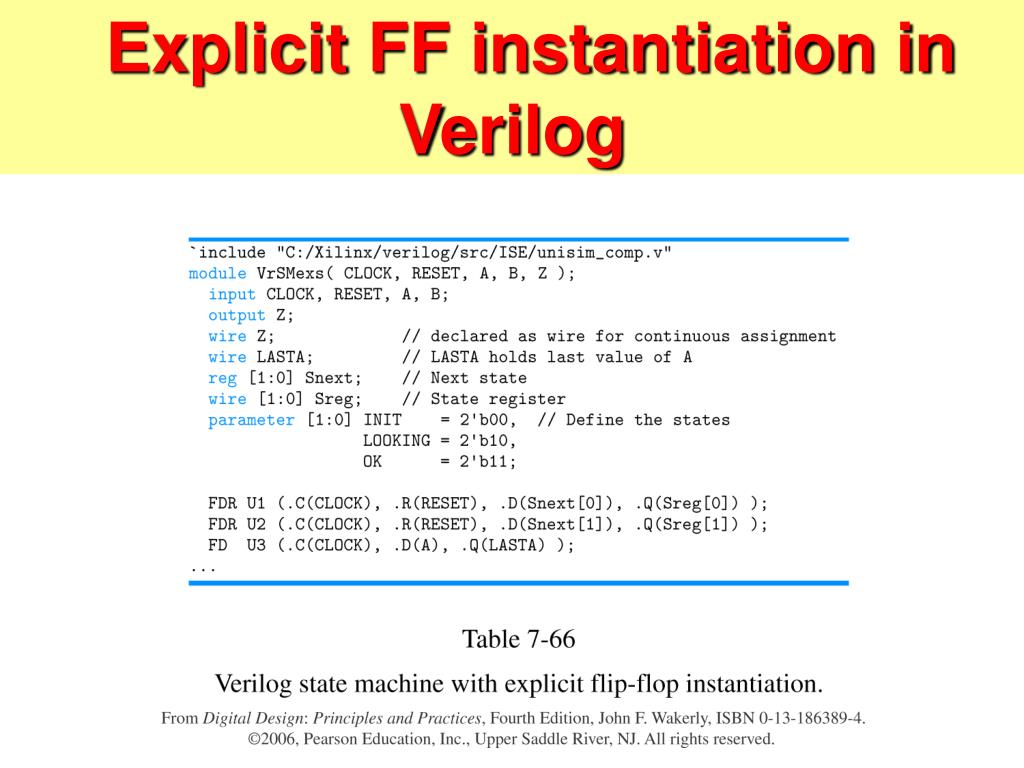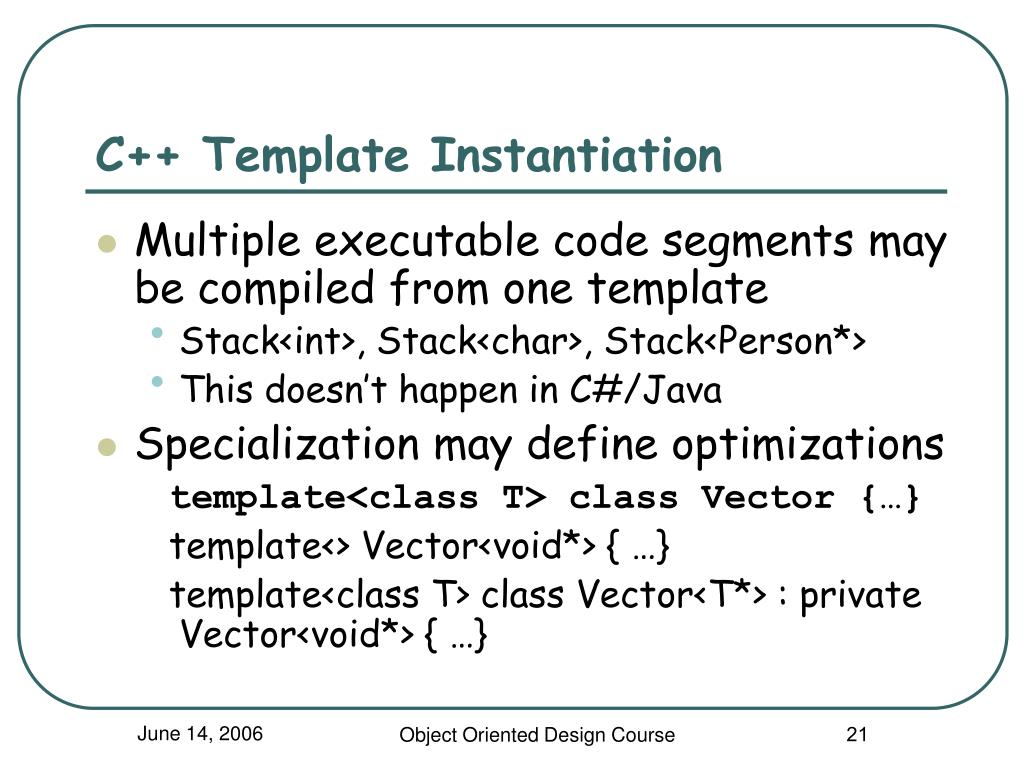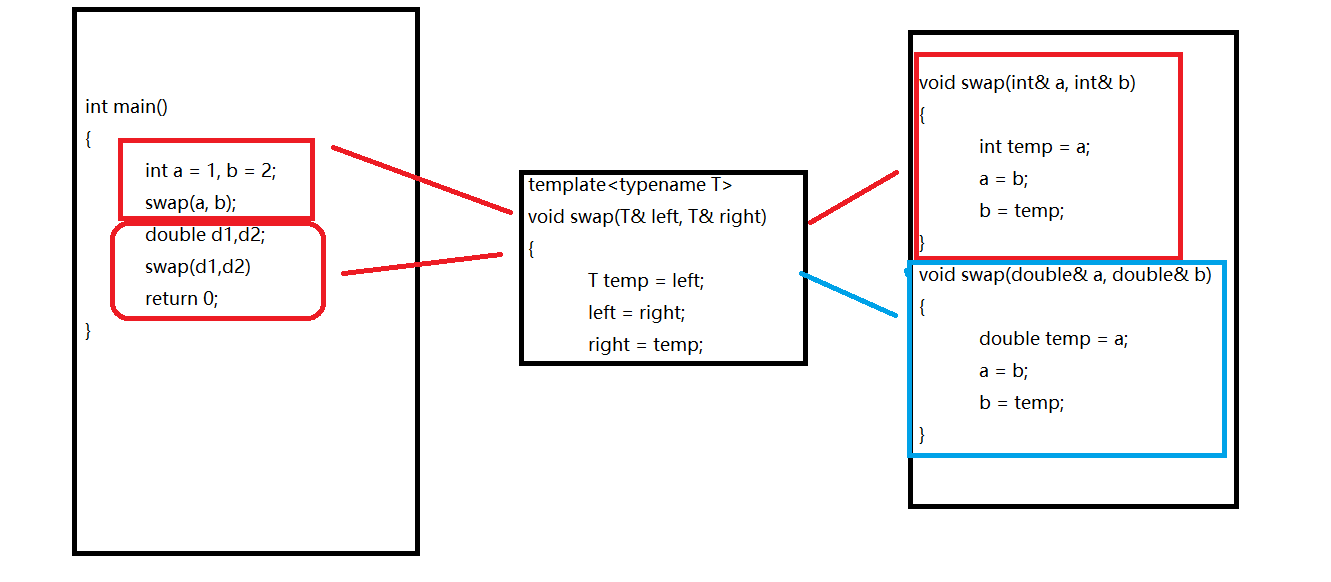Explicit Template Instantiation
Explicit Template Instantiation - Web learn how to use function templates to create generic functions that can handle different types. Web learn how to use explicit specialization to customize the template code for a given set of template arguments in c++. Web if a function template, variable template, member function template, or member function or static data member of a class template is explicitly instantiated with an explicit instantiation definition, the template definition. Web since the compiler doesn't perform any implicit type conversion during template argument deduction, we can invoke max(2, 5.5) in these two ways: Web learn how to define and use a class template in c++, a family of classes that can be parameterized by types and values. Web put the template declaration in the header file just like a normal class. Compare the borland and cfront models of template instantiation and the options for dealing with them in gcc. Web you can use the following syntax in class.cpp: I tried the following code snippet but i get this error: See the syntax, parameters, constraints, and instantiation of class templates. Web in general you don't need to explicitly instantiate a template, but just define it in a header file and include that header file. Find answers to common questions and problems about templates, such as linker errors, specialization, constraints, and nested types. An explicit instantiation definition that names a class template specialization explicitly instantiates the class template specialization and is an explicit instantiation definition of only those members. Web learn how to define and use a class template in c++, a family of classes that can be parameterized by types and values. Web however, we can add specialized template support through explicit template instantiation which will add the symbols needed to link (properly) against the library for use. In particular, p12 provides that: Web to perform explicit template instantiation, the grammar is something like template struct s; Put the template definition in a source file just like a normal class. Thus, the above is equivalent to the following, just more concise: Explicit instantiation of 'print_message' does not refer to a function template, variable template, member function, member class, or static data. If you really want to instantiate (instead of specialize or something) the function, do this: Thus, the above is equivalent to the following, just more concise: Web learn how to use explicit template instantiation to avoid code duplication and improve compilation speed in c++ programs. See examples of implicit and explicit instantiation, template argument deduction, and overload resolution. Web learn how to use function templates to create generic functions that can handle different types. Then, at the end of the source file, explicitly instantiate only the version you want to be available. Template void func(t param) {} // definition. See the syntax, constraints, and examples of function templates and explicit template instantiation. Take the following revision of the example.cpp: See the syntax, parameters, constraints, and instantiation of class templates. Web learn how to define and use a class template in c++, a family of classes that can be parameterized by types and values. Web learn how the compiler creates an instantiation of a function template for each type when it is first called. Web you can use the following syntax in class.cpp: See examples of implicit and explicit instantiation,. See examples of implicit and explicit instantiation, template argument deduction, and overload resolution. Find answers to common questions and problems about templates, such as linker errors, specialization, constraints, and nested types. Then, at the end of the source file, explicitly instantiate only the version you want to be available. Web explicit instantiation is designed to optimize template libraries usage providing. Web learn how to use templates in c++ to create generic code that works for different types. Thus, the above is equivalent to the following, just more concise: If you really want to instantiate (instead of specialize or something) the function, do this: Web explicit instantiation is designed to optimize template libraries usage providing some of (mostly used) template instances. Web since the compiler doesn't perform any implicit type conversion during template argument deduction, we can invoke max(2, 5.5) in these two ways: Web you can use the following syntax in class.cpp: Then, at the end of the source file, explicitly instantiate only the version you want to be available. Compare the borland and cfront models of template instantiation and. Web in general you don't need to explicitly instantiate a template, but just define it in a header file and include that header file. If you really want to instantiate (instead of specialize or something) the function, do this: Compare the borland and cfront models of template instantiation and the options for dealing with them in gcc. Web since the. Web learn how to create an instantiation of a templated class or function without using it in your code. See the syntax, parameters, constraints, and instantiation of class templates. Web how do i template instantiate the print_message function explicitly in the.cpp file, along the lines of how it is described here. Web see anthonyhatchkins' answer for more details. Take the. Web learn how to use explicit template instantiation to avoid code duplication and improve compilation speed in c++ programs. See examples of explicit instantiation for mystack class and function templates, and how to use extern keyword to prevent automatic instantiation. Web is the class keyword necessary for an explicit instantiation declaration? Web explicit instantiation is designed to optimize template libraries. I tried the following code snippet but i get this error: Web learn how to use function templates to create generic functions that can handle different types. Web in general you don't need to explicitly instantiate a template, but just define it in a header file and include that header file. In particular, p12 provides that: Explicit instantiation of 'print_message'. Find answers to common questions and problems about templates, such as linker errors, specialization, constraints, and nested types. Web if a function template, variable template, member function template, or member function or static data member of a class template is explicitly instantiated with an explicit instantiation definition, the template definition. Web since the compiler doesn't perform any implicit type conversion. Web learn how to define and use a class template in c++, a family of classes that can be parameterized by types and values. Web in general you don't need to explicitly instantiate a template, but just define it in a header file and include that header file. I tried the following code snippet but i get this error: Web. However, a common application of explicit template instantiation is when you want to hide the definition of a template. Web learn how to define and use a class template in c++, a family of classes that can be parameterized by types and values. Put the template definition in a source file just like a normal class. Export template inline void f(t &t) {++t;} template void f(int&); Thus, the above is equivalent to the following, just more concise: Web since the compiler doesn't perform any implicit type conversion during template argument deduction, we can invoke max(2, 5.5) in these two ways: If you really want to instantiate (instead of specialize or something) the function, do this: Web learn how to use explicit template instantiation to avoid code duplication and improve compilation speed in c++ programs. Web in general you don't need to explicitly instantiate a template, but just define it in a header file and include that header file. Web all you do is put an explicit instantiation definition in the module interface: Web if a function template, variable template, member function template, or member function or static data member of a class template is explicitly instantiated with an explicit instantiation definition, the template definition. Web explicit instantiation is designed to optimize template libraries usage providing some of (mostly used) template instances in compiled binary form instead of source code form. Web you can use the following syntax in class.cpp: Take the following revision of the example.cpp: In particular, p12 provides that: Compare the borland and cfront models of template instantiation and the options for dealing with them in gcc.Explicit Template Instantiation
Learn What Is Explicit Instantiation of a Template in C++
C++ Force explicit template instantiation with CRTP YouTube
Explicit Template Instantiation
Explicit Template Instantiation
Explicit Template Instantiation
Explicit Template Instantiation
Explicit Template Instantiation
Explicit Template Instantiation
Explicit Template Instantiation
See The Syntax, Constraints, And Examples Of Function Templates And Explicit Template Instantiation.
Web Learn How To Use Explicit Specialization To Customize The Template Code For A Given Set Of Template Arguments In C++.
However, I Can Only Instantiate One Instance Using One Line In This Way.
Then, At The End Of The Source File, Explicitly Instantiate Only The Version You Want To Be Available.
Related Post:








